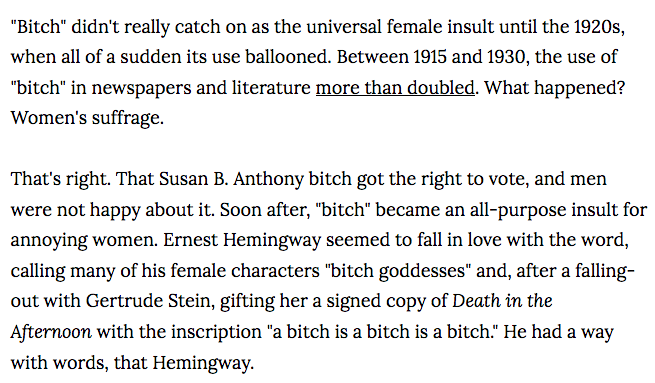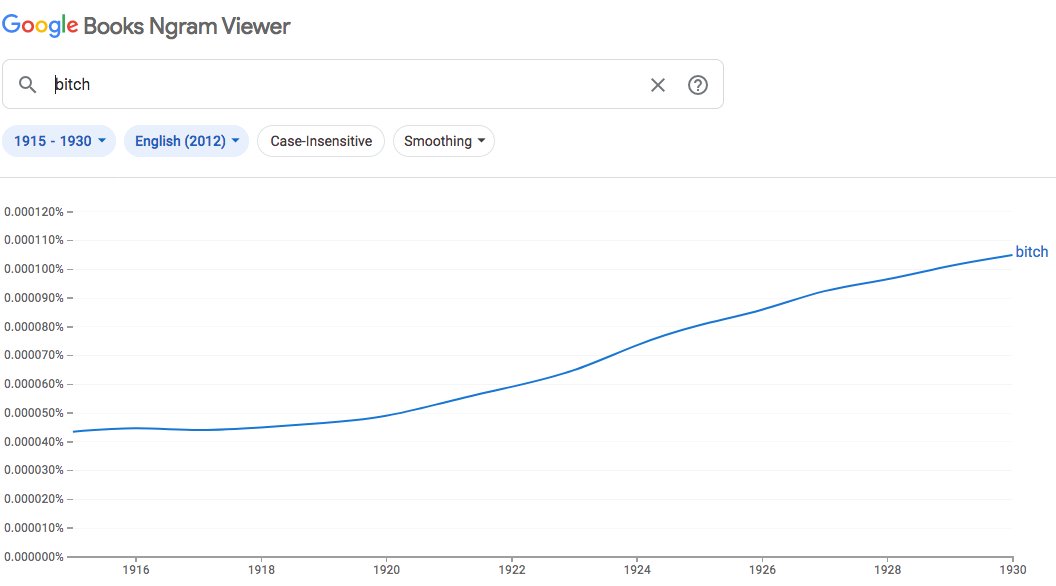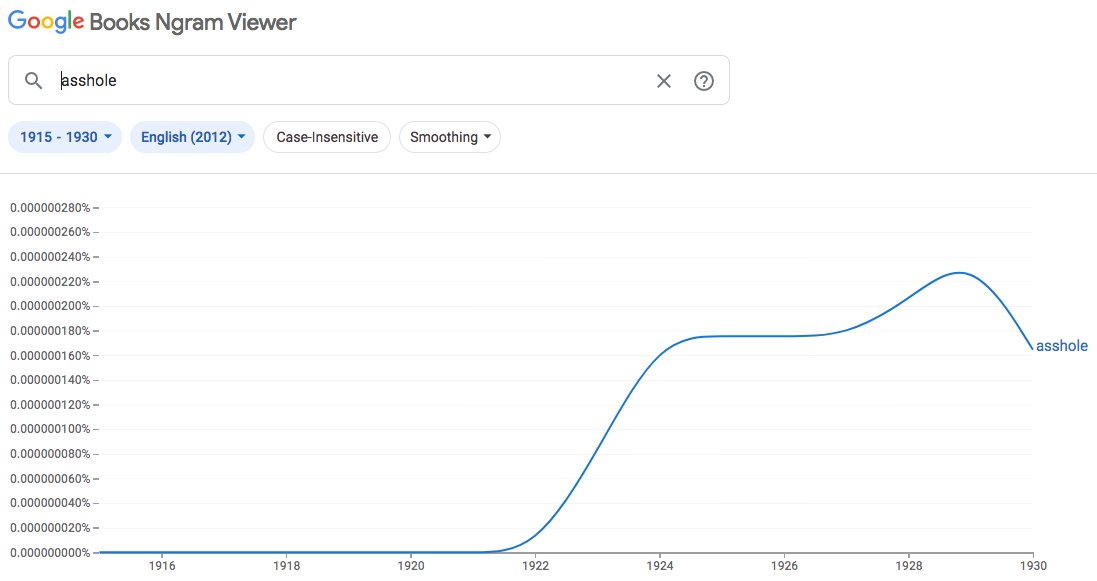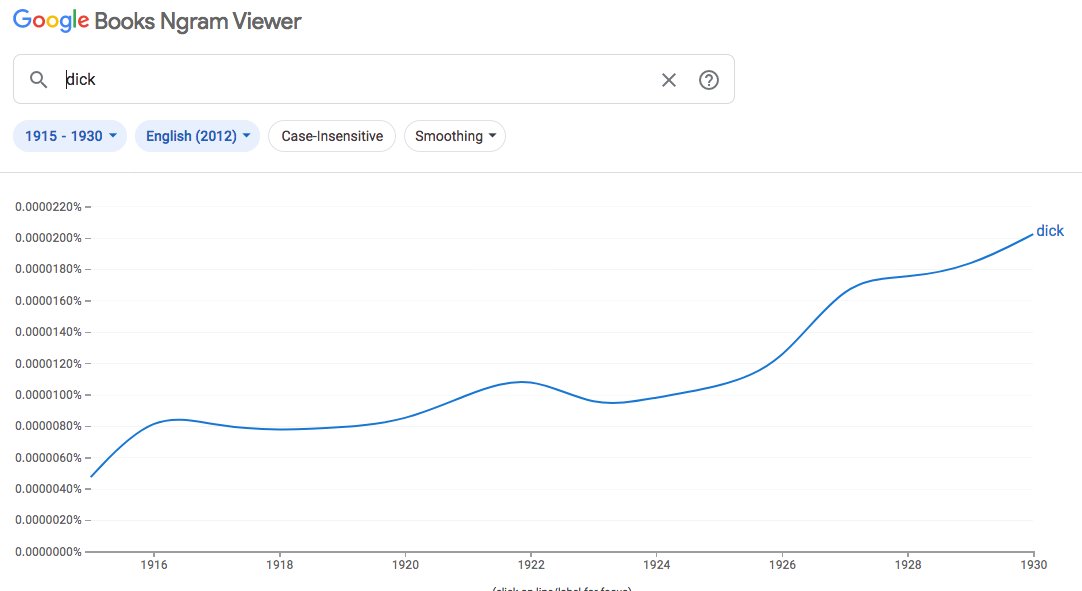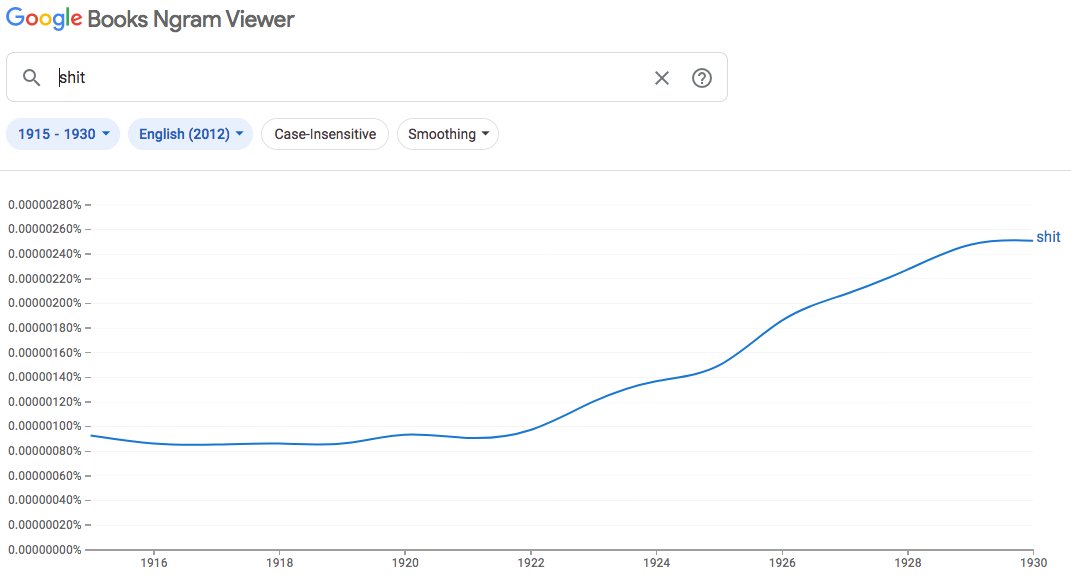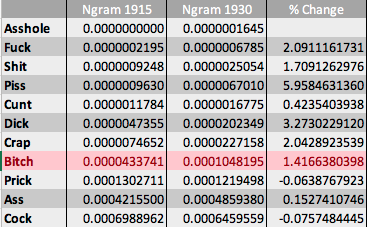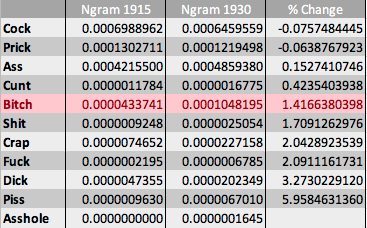With apologies for the profanity: a thread on "bitch" and the problem of journalistic pseudo-scholarship. The major argument of this Vox article is that the insult "bitch" became more common as a response to suffrage—a fairly dramatic claim. But what is the basis? https://twitter.com/voxdotcom/status/1296099652337639425
Here's the core argument. Vox notes "scholars are unsure" but then decides to assume the claim as the thesis of the article anyway. (Pretty priceless for the flagship of "explainer journalism.")
(Stamper and Hall, a lexicographer and a linguist respectively, are both good sources to quote. But it is notable that Vox does not quote any actual evidence in support of the main claim from either of them. They may have more evidence! But it's not cited here.)
So ultimately the only source for the main argument is the Vice article linked, which asserts that the use of "bitch" more than doubled 1915–1930. It provides a single link—dear reader, we are nearing the end of the trail of breadcrumbs!—which leads us to:
The one and only piece of concrete evidence on which the whole edifice is built... a single Google Ngram search. 

In the first place, raw Ngram statistics like this can't really prove actual increased frequency of use in eras where rates of publication of different genres/media, standards for moral censorship, etc. are in flux.
But secondly, even if we accepted Vice's methodology, the Ngrams for almost every other profane word in English show similar trends. Here's, ee.g., asshole, dick, fuck, and shit. None of which, I imagine, can be said to have become more common in reaction to women's suffrage.
And two quick tables I drew up, with a few more words: one ordered by initial (1915) frequency of each word; one ordered by % change 1915–1930. "bitch" is in no way exceptional.
The main exceptions to the trend seem to be (1) words which had common non-profane uses ("ass" and "cock," as zoological terms; and "prick," also a common verb); and (2) "cunt" (which I would presume was considered so offensive/profane that it resisted the trend).
(There are interesting observations in both articles about possible semantic shifts in "bitch," which I do not address; I am looking only at the lack of evidence provided for the main claim about popularity/frequency of use.)
Such is the tralatitious nature of our partisan media. A bit of sloppy research confirms a writer's priors. An argument is repeated in ideologically-aligned publications, without critically examining the original research. And an unfounded claim becomes "common knowledge."
Also, though this should go without saying, don't call women "bitches."

 Read on Twitter
Read on Twitter
